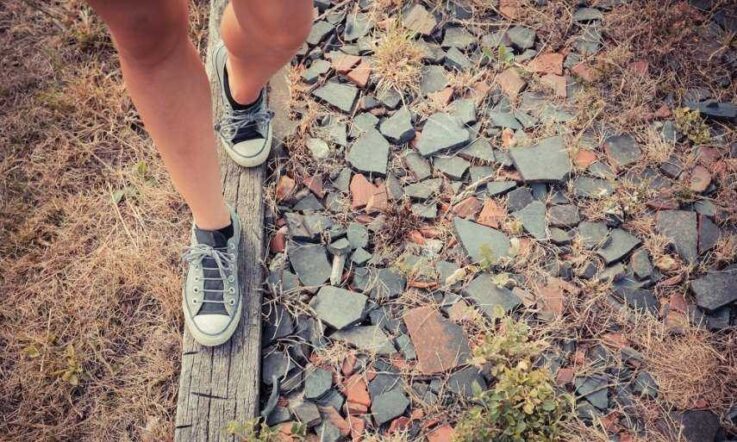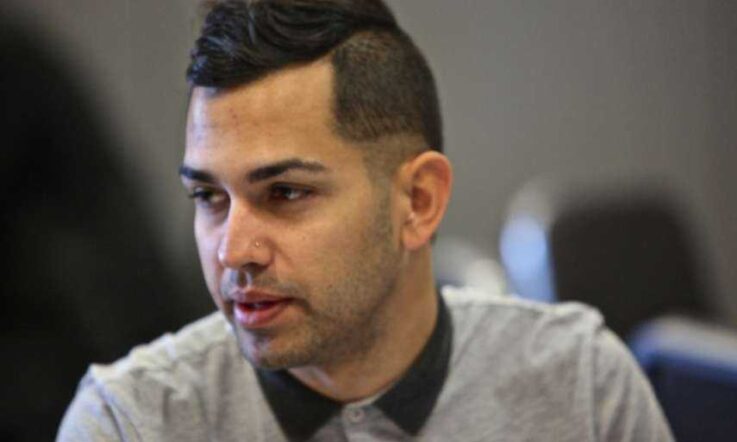This is an edited version of an article that was originally published in the August 2011 print edition of Teacher.
Lifelong learning
Catherine Pike is applying new skills gained through postgraduate study to teaching preschoolers and university students. Even with a Bachelor of Educational Studies with honours, a Diploma of Teaching: Early Childhood and nearly 30 years as an early childhood educator under her belt, Catherine wanted to learn more, and is now midway through a Master of Education at Griffith University.
Catherine team-teaches a Year 1 classroom at Aspley State School in Brisbane and assists with the implementation of the early years curriculum into the school’s lower primary classrooms.
‘I took on postgrad studies to enhance my professional learning and to keep abreast of current changes to curriculum and teaching. Participation in this course has given me the impetus to reflect on my own current teaching practices, and implement changes that have benefited both my career opportunities and the learning journey of the children,’ Catherine explains.
‘Our six-year-old learners have since been introduced to persuasive writing and thinking, critical literacies, reflection techniques and projects that have seen them take on roles of active citizenship within our community,’ she says.
The course has also provided Catherine with the opportunity to tutor students in the Graduate Certificate of Early Childhood course at Griffith University. Catherine says that her study has given her new knowledge, which she has shared with professional colleagues, has allowed her to take on additional responsibilities within her school, and has inspired her to consider taking further leadership, curriculum writing or academic roles in future.
She also notes that the online delivery of the course has enhanced her information and computer technology skills and kept her connected to new ways of learning. ‘I have embraced online learning, and although my previous degrees were completed on campus in face-to-face contact with a group of my peers, ideas and support for my current course are only a click away,’ Catherine says.
Fostering kids’ creativity
Sarah Rakich is undertaking postgraduate study to push her practice out of her comfort zone – and to learn how to coax her students out of theirs.
Sarah, a Kindergarten teacher at Malvern Early Learning and Childcare Centre in Melbourne, is studying the Master of Education at the University of Melbourne. She is specialising her degree through early childhood education subjects. ‘I really love my job, but I wanted to reconnect with current trends and theories in the field, in order to be a better Kinder teacher,’ Sarah explains.
‘After working for eight years I felt I had become very comfortable in my profession; I was keen for the challenge of new learning opportunities and I also wanted to broaden my professional horizons,’ she says. Aware that engaging, high-quality early childhood education has ongoing positive benefits for students, Sarah wanted to make sure her classroom strategies were as effective as they could be.
‘I think the catalyst for me returning to study was a particularly creative group of children in my class, who really pushed me to think of new ways to stimulate them. I became increasingly interested in exploring environments that foster kids’ creativity,’ she says.
The early childhood education area of the course explores a range of historical and contemporary theoretical perspectives and international research in the early childhood field, as well as early childhood curriculum frameworks and pedagogy. The aim is for students to understand theory, policy and practice.
‘I’m really enjoying learning the social theory behind my day-to-day practice – it’s already having an impact on what I do in my classroom,’ Sarah says.
‘The early childhood subject is particularly fantastic. The class is a good size, and the discussion is exciting. Exploring fresh perspectives with other professionals is a wonderful way to learn, and keep my job interesting!’
Making the most of the middle years
Having almost completed her Master of Educational Studies by coursework at The University of Queensland, Shelly Dent Alonso believes postgraduate study has made her a more effective and knowledgeable teacher.
Described by her colleagues as an ‘amazing maths and science teacher,’ Shelly has been employed by Education Queensland for 18 years, teaching across Years 8 to 12.
She has taught at Corinda State High School in Brisbane for the past 15 years and has been seconded by Education Queensland’s Science Spark Initiative as a Primary Science Facilitator for 2011. Shelly says she undertook the Master of Educational Studies (Middle Years of Schooling) to enhance her teaching practice and allow her to better address the learning needs of her students.
The program helps teachers to understand the ways students in Years 4 to 9 develop and learn. This is often a tricky phase in students’ schooling, and teachers must have effective strategies to ensure students stay engaged.
‘My studies have allowed me to explore and better understand curriculum, pedagogy and assessment,’ Shelly explains.
‘I am very interested in engaging students in inquiry-based learning and encouraging them to explore and expand their knowledge of concepts and skills,’ she says.
According to Shelly, it is so important for students to enjoy coming to class and to feel that they play a vital role in the class’s learning community.
‘I hope that through the classroom environment we have created together and the inquiry-based teaching and learning approach that I use, that each student really believes in and strives to achieve his or her best in our science and maths classrooms,’ she says.
Shelly says her understanding of teaching, including educational best practice and the reasoning behind educational reforms, has been enriched through her postgraduate study at The University of Queensland.
‘I am truly delighted that I decided to further my own learning through postgraduate study, and I sincerely value the continuing influence of that learning on my teaching beliefs and practices in the classroom,’ she says.
Stepping stone to a stronger career
Studying the Master of Education at Deakin University allows Gavin Wake to build on teaching strategies for reaching for disengaged students and to expand his own career options, all while studying at a pace that suits him.
Gavin initially took time out of the workforce to study full-time, which he says gave him breathing space to explore his career options.
‘I always knew I wanted to work with disengaged students. I wanted to understand more about education as a whole, why we practice the way that we do, and different strategies to engage students who are struggling with school,’ Gavin explains.
Gavin had build up good rapport with lecturers while completing his Graduate Diploma at Deakin University, so he returned there to undertake his Master of Education. He says that the experience helped him to take the next step in his career.
‘Beginning the masters opened my eyes again to a whole new set of options available to me as a teacher. My supervisors have been great mentors to me. I’ve had the opportunity to give some tutorials and lectures to students in the Graduate Diploma course. I also built up good networks with different schools. My goal was to find the right full-time teaching position for me, and I’ve achieved that successfully now,’ Gavin says.
‘Because I was so engaged with my own learning and practice, I was able to have really involved discussions with my employers about where I want to go in future. And, later on, if I want to move into a management role in education or to pursue a career in the university sector, I will have the qualifications to keep my options open,’ he says.
Gavin says that the mix of online and face-to-face delivery of his course has been important.
‘I’ve been studying from home, but I have regular with contact with my supervisors.
There are options to do most units on-campus, but I needed to have the freedom to do it in my own time, to pace my own learning to fit around my classroom practice,’ he explains.
‘And in my teaching, I’m up to date on the literature and right on the pulse of what’s happening in education, so that’s kept me very relevant and real,’ he says.
Teaching reading in remote areas
Postgraduate study through the ACER Institute is helping Meegan Brown to fulfil her lifelong passion for improving the learning outcomes for students in remote areas.
Meegan has taught in schools in rural and remote areas for the last 15 years. Since 2008, she has been the Head of Campus of the Gregory Educational Facility, a oneteacher campus of Doomadgee State School located in Gregory Downs, approximately 350 kilometres north of Mount Isa in inland Queensland. The facility caters for students from pre-prep to Year 7.
This year, Meegan started the Graduate Program in the Teaching of Reading offered through the ACER Institute. She hopes that the program will assist her to improve her own practice and help other teachers and schools develop effective reading programs.
‘I want to continue to develop my understanding of how students learn to read, and how to effectively teach and assess reading,’ she says.
‘By doing this course I hope to continue to develop literacy programs that are effective so that my students have a range of strategies that enable them to become successful independent readers who enjoy reading.
Meegan has undertaken postgraduate study before, and stressed the importance for teachers to continually build on their skills. She also notes the value for teachers in building professional networks – particularly for teachers, such as herself, who are physically isolated from their colleagues.
‘The support offered by the ACER Institute to allow me to study externally has been amazing. It caters for the different circumstances of its students. Even though we are separated by great distances, the members of the course are supportive of each other and learn through sharing our knowledge and experiences,’ Meegan says.
‘It has been a wonderful opportunity to be able to participate in this course. The knowledge and networks I have been able to establish as a result are priceless,’ she says.
This is an edited version of an article that was originally published in the August 2011 print edition of Teacher.



